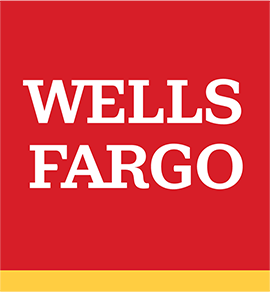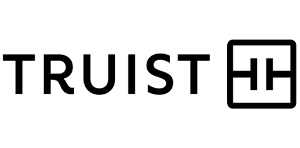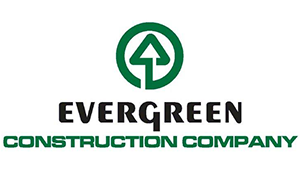NCHC Updates
Save the Date!
- [virtual] Bringing it Home Conference: Ending Homelessness in NC | NCHC, NCDHHS, & NCCEH, 5/2-5/3
- Featuring Ann Oliva, CEO of the National Alliance to End Homelessness and Kody Kinsley, Secretary of NCDHHS
Focus: 2022 County Profiles
Key Changes in 2023 County Profiles:
- This year staff received feedback on our past County Profiles from the broad network of organizations and individuals in our Coalition. We asked questions about how the profiles are used and what data points people would like to see more of. This year, we’ve reorganized and streamlined some of the data in order to tell a more nuanced story about housing in the state and in each county. Staff worked hard to balance the immense amount of data that exists to describe housing needs with goals of making the data consistent, reliable, easy to understand, and impactful.
- As evictions increase nationwide, we want to track where the crisis is most acute in our state. We have added an eviction score between 1-100 in order to compare the rate of evictions across the state (1 representing the highest level of evictions, and 100 representing the lowest).
- We also replaced the Area Median Income (AMI) featured in previous reports with the National Low Income Housing Coalition’s (NLIHC) housing wage for each county, which represents the minimum household income needed to afford a fair market rent (FMR) 2-Bedroom apartment in each county. While average incomes in a county may be higher than the local FMR, the housing wage still exceeds many household incomes, as demonstrated by the featured industry wages.
- The lowest housing wage – estimated wage needed to afford a 2 bedroom apartment in the state- is $14.83 in Wilkes County, and the highest housing wage is in Buncombe County at $28.19, double and triple the federal minimum wage ($7.25) respectively.
Data Highlights
- 1,097,035 households in North Carolina are considered cost-burdened, meaning they are paying more than 30% of their income on housing.
- 47% of renters in North Carolina are cost-burdened
- 19% of homeowners in North Carolina are cost-burdened
The following counties have the top 5 highest percentage of eviction filings per total number of renters across the 100 counties in North Carolina. Counties were assigned a rank between 1 and 100, 1 representing the highest % of evictions per total renters, and 100 the lowest.
-
- Edgecombe County – 19% Eviction Rate
- Nash County – 16% Eviction Rate
- Vance County – 15% Eviction Rate
- Guilford County – 14% Eviction Rate
- Forsyth County – 14% Eviction Rate
Although these profiles are truly only a “snapshot” of the full picture, the data still shows a clear, statewide need for affordable housing across North Carolina no matter if the community is urban or suburban or rural. The data confirms several things:
- We know that consistently, well over a million households across North Carolina are paying more than 30% of their income on housing.
- We know that no person earning minimum wage can afford an apartment at fair market rent. Unless they carry multiple jobs and/OR work at least 90 hours a week and/ OR sacrifice other living expenses to do so.
- We know that a vast majority of our most critical workers – our child care providers, health care support professionals, public servants, and agricultural workers, do not make enough to afford a fair market apartment without being cost burdened.
- We know that the data demonstrates housing is an intersectional issue, and we cannot advocate for the resources to meet the volume of the need without collaboration and collective action across policy areas.
Federal Updates
- Biden-Harris Administration Releases Blueprint for a Renters Bill of Rights. Last Wednesday, the Biden-Harris Administration released a Blueprint for a Renters Bill of Rights designed to increase fairness in the rental market. Over the weekend, National Low Income Housing Coalition president Diane Yentel spoke with NPR about the plan. She noted that one of the most significant advances included in this document is the addition of the Federal Housing Finance Agency’s new process to examine proposed actions promoting renter protections and limits on egregious rent increases for future investments. Yet, Yentel also acknowledged that this is a very limited document that only promises to engage in a process to consider rent protections. This comes after criticism of the administration failing to hold corporate landlords accountable for predatory behaviors, even after a year-long Housing Committee investigation found evidence that 4 major corporate landlords engaged in such behaviors during and after the height of the pandemic. Check out this fact sheet from the White House to learn more about the Blueprint for a Renters Bill of Rights.
- HUD Announces 100,000+ Housed through Homelessness Initiative. Last week, HUD Secretary Marcia Fudge announced that the “House America” homelessness initiative has resulted in over 100,000 families experiencing homelessness being housed and 40,000 units of affordable housing in the pipeline. The initiative, which began in September 2021, provides 105 communities across the U.S. with funding from the American Rescue Plan Act to address homelessness and create permanent housing opportunities. Across NC, Charlotte, Greensboro, Raleigh, and Durham are participating in the program.
- HUD Announces $116M for FSS Programs. Last week, HUD also announced over $116 million in new and renewal funding for the Family Self Sufficiency (FSS) Programs. In NC, 53 PHAs received renewal funding for FSS Coordinator positions and 3 PHAs received new funding:
-
- Robeson County Housing Authority
- Roanoke Chowan Regional Housing Authority
- Franklin-Vance-Warren Opportunity, Inc.
-
Families in HUD-assisted housing who opt to participate in the FSS program are provided coaching, referred to services and establish a family escrow savings account. In a show of continuing bipartisan support for this 30-year-old program, FSS was appropriated $125 million in FY23 Budget.
State and Local Updates
- Osage Mill Renovation Project Breaks Ground in Gaston County. WinnCompanies broke ground last week on a $35M adaptive reuse project at Osage Mill in Bessemer City. The renovation will create 139 affordable apartments for people in the Charlotte metro area earning at or below 60% of the Area Median Income. The projects leverages the federal Historical Tax Credit and NC’s Mill Rehabilitation Tax Credit program with a 4% LIHTC award.
- Renter Rising Housing Rally in Charlotte. Community activists and renters held a Renters Rising housing rally outside of Invitation Homes’ corporate office in Charlotte last Wednesday. Renters Rising is “a national alliance of renters working to shift the balance of power between renters and corporate landlords to guarantee that renters are able to live with dignity.” The group called for a 3% cap on rent increases and a grievance process for tenants.
- Chapel Hill public hearing on upzoning extended to next month. Chapel Hill Town Council received feedback from residents last week regarding plans to upzone some neighborhoods in an effort to create more “missing middle” housing. Upzoning increases housing density by allowing for more types of housing, like duplexes, triplexes, and ADs. Council voted to continue the public hearing to February 22 and will hold info sessions on January 31 and February 2. This past year, the Town of Chapel Hill allocated $9.1M towards affordable housing.
Events
- [virtual] Insecure Housing, Homelessness, and Health | Boston University School of Public Health, 1/31, 1-2:30 p.m.
- [virtual] Policymaking for Housing Justice: Unpacking the Equity Challenges of Housing Code Enforcement | ChangeLab Solutions, 1/31, 2 p.m.
- [virtual] Homelessness as a Housing Supply Problem | Bipartisan Policy Center 2/7 1-2 p.m.
- [virtual] Our Housing Futures: Proposed AFFH Rule 101 | Policy Link, 2/8 @ 2 p.m.
- [in-person] Homeward Bound’s HomeTrust Bank Open Your Heart for Women & Homelessness Luncheon (Lunch & Learn) | Homeward Bound, 2/14. 12 – 1:15 p.m. @ Trinity Episcopal Church in downtown Asheville. Suggested $5 donation for lunch
- [virtual] Rental Markets a Year After Our America’s Rental Housing Report | Joint Center for Housing Studies of Harvard University, 2/24, 12:15 p.m.
- [virtual] Housing Finance & Social Equity: Addressing Race and Racism in Mortgage Lending | Joint Center for Housing Studies of Harvard University, 2/28, 11 a.m.
- [in-person] Affordable Housing Seminar: Tools, Strategies, and Case Studies for Local Government Leadership | UNC School of Government, 2/28 @ the New Bern Convention Center
- [in-person] NC Rural Summit | NC Rural Center, 3/20-21 @ the Raleigh Convention Center
- [in-person] Housing Policy Forum 2023 | NLIHC, 3/21-23, 2023 in Washington, D.C.
- Features discussions with Congresswoman Pramila Jayapal (D-WA), chair of the Congressional Progressive Caucus, and Treasury Deputy Secretary Wally Adeyemo. Keynote speakers include Matthew Desmond (author of Evicted and leader of Eviction Lab) and Rev. Dr. William Barber II.
Reports and Resources
- A Toolkit for Resident-Centered Outcomes Measurement in Affordable Housing | Steward of Affordable Housing for the Future
- NLIHC Releases Memo Outlining Policy Priorities for 118th Congress | National Low Income Housing Coalition
- Renter Financial Distress has been Concentrated in High-Poverty Neighborhoods and Communities Of Color | Joint Center for Housing Studies of Harvard University
- Increasing Latino Homelessness—What’s Happening, Why, and What to Do About It | National Alliance to End Homelessness
- How Does Mortgage Debt Affect Health Care Access? | Urban Institute
- The McKinney-Vento Act Helps Thousands of Students Every Year. How Could It Help Even More? | Urban Institute
- The State of Local Zoning: Reforming a Century-Old Approach to Land Use | Lincoln Institute of Land Policy
- Within Reach: Ending Unsheltered Homelessness in the Asheville-Buncombe CoC | NAEH Final Report
In the News
- As thousands fall behind on rent, public housing faces ‘disaster’ | The New York Times
- Senior Housing That Seniors Actually Like | The New York Times
- The average U.S. renter now spends 30% of their income on rent, a new all-time high | Marketplace
- HUD Secretary Fudge addresses homelessness and affordable housing | NPR
- A. City Council votes to expand tenant protections | Los Angeles Times
- Black Congregations Are Developing Housing on Church Land | Shelterforce
- Census data shows N.C. second most popular state for relocating retirees | WECT
- North Carolina, South Carolina in top 5 for US housing price increases | WCNC
- Olive Tree acquires North Carolina affordable community | | Multifamily Real Estate News
- 1 in 4 Wake County households can’t afford their home | WRAL
- North Carolina housing shortage, instability negatively impacts mental health | The Daily Tar Heel
- Affordable housing explained: A look at public developments in Chapel Hill | The Daily Tar Heel
- ‘I just want some help:’ The struggle to find affordable housing in the Charlotte region | WBTV
- For renters, Asheville area market the worst in NC, 5th worst in the US, study says | Asheville Citizen-Times
- Asheville’s biggest landlord stopped accepting rent assistance in 2022 | Asheville Citizen-Times
- Housing crisis: Would-be employees pass on jobs because they can’t afford Asheville rents | WLOS







